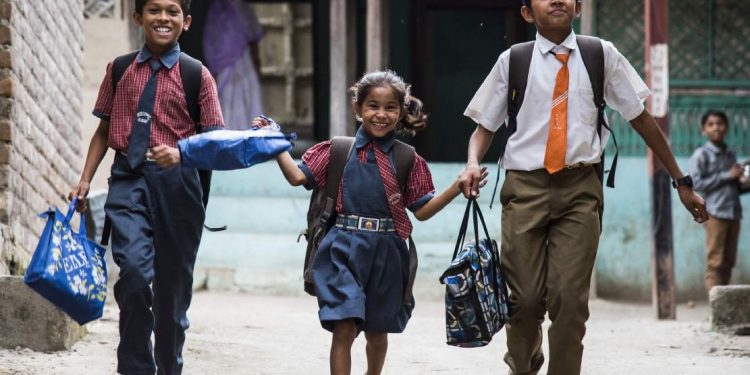After almost a fake narrative over children likely being the prime target of a possible impending ‘3rd wave of covid upsurge’ sent parents and children in tizzy and stress, experts have been allaying these fears with science and lessons from past two waves.
The central government said the data doesn’t suggest any such threat to children. Dr VK Paul, one of the key members of the PM’s Covid management team, speaking to a TV channel said, “It is uncertain that a wave would affect children specifically. Till now, children have displayed similar seroprevalence as adults, which means, they are as much affected as adults.”
Earlier, Dr N K Arora, Chairman of India’s COVID-19 Working Group of the National Technical Advisory Group on Immunisation (NTAGI), had said Indian data does not show specific predilection of the currently circulating virus strains either for the youth or paediatric age group. Though he stressed on the need to improve the paediatric Covid services and align with the rest of the COVID-19 management framework but added that based on what the experience is available from our own country and that from other parts of the world, there is no reason to believe that children will be disproportionately affected in the coming weeks and months or in the next wave. AIIMS Director Randeep Guleria also said there was no indication that children will be severely or more affected in the third wave of the pandemic. “If we see the data of the first and second waves, it is very similar and it shows that children are usually protected and even if they get it, they only have mild infection. And the virus hasn’t changed so there is no indication that children will be more affected in the third wave. And there is this hypothesis that the virus enters through ACE receptors in the body and these receptors are relatively less in children as compared to adults. This is a hypothesis on why the infection has been less amongst children,” he said.
It is pertinent to mention that in the US FDA’s Vaccines and Related Biological Products Advisory Committee (VRBPAC) meetings the rush to use of vaccines in the pediatric population because kids are at such low risk from the virus, was also questioned. There, Pfizer’s COVID vaccine is currently authorized for emergency use in people as young as age 12. Moderna is authorized for people 18 and older, although the company has asked the FDA to authorize its use in children as young as 12.
Peter Doshi, Ph,D, associate professor University of Maryland School of Pharmacy and senior editor of The BMJ, said during the open public hearing session, there is no emergency that would warrant using EUA to authorize COVID vaccines for children. Vaccinating children for the benefit of adults is an “unproven hypothetical benefit,” Doshi said. He reminded the FDA they cannot authorize or approve a medical product in a population unless the benefits outweigh the risks in that same population.
With Covaxin trails on children authorized in India, it will be keenly observed if and when a vaccine for children is approved.
Those tying reopening of schools with vaccination of children may be on wrong premise and a better bet would be universally vaccinated adult population. But everything boils down to how the virus will behave in coming weeks and months.












